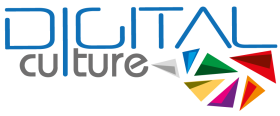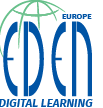
DigitalCulture
Improving the Digital Competences and Social Inclusion of Adults in Creative Industries
The project aims to create a sustainable and efficient education program dedicated to adult learners with low digital skills and low-qualified adults involved in the creative industries sector from Romania, Italy, Austria, Denmark, Lithuania, UK and Ireland. The main outcomes include the Digital Skills and Social Inclusion for Creative Industries MOOC Courses available online and through blended learning, the Integrated Virtual Learning Hub including an innovative mobile app aimed at low-skilled and at-risk adults, the Digital Skills e-assessment tool and Open Badges for Digital Skills. Together they will provide important new opportunities for low-skilled adults to access knowledge, gain new digital skills and inter-cultural competences and improve their chances of finding employment or performing better in their current employment.
The project addresses a gap in creative industries (CI) education where there is low emphasis on the use of new digital technologies, entrepreneurship (project management) and both recent graduates and existing employees lack important skills.
The shortage of digital skills in Europe reported in 2016 in “European Digital Progress Report EDPR” of European Commission: 45% of Europeans have insufficient or no digital skills. Based on the Digital Economy and Society Index (DESI) index of 2017 there are big differences between the countries that are partners in this project. Denmark has one of the most advanced digital economies in the EU, while Lithuania and Austria are in the middle, but Romania and Italy have the lowest scores on the DESI. Studies performed in the cultural and creative industries, in the autumn of 2016, 2017 in partner countries showed a large majority scoring lower or basic level for the 21 digital competences. The reasons driving this skills shortage are not hard to identify. The usage of web, mobile, social and analytical tools is permeating the length and breadth of the culture, creative industries, areas which until recently have been reluctant to embrace the use of the new technologies. Eurostat 2017 identifies young adults from the CI as the most at risk for unemployment from the 22-36 yo, and lack of entrepreneurial and digital skills.
The DigiCulture – Improving the Digital Competences and Social Inclusion of Adults in Creative Industries – project aims to create a sustainable and efficient education program dedicated to adult learners with low skills in the creative industries from Romania, Italy, Austria, Denmark, Lithuania, UK and Ireland. The project focus on openness and inclusive in education. It involves the use and development of an open online and mobile course Digital Skills and Social Inclusion for Creative Industries, built as a Massive Open Online Course (MOOC), an innovative adult educational program of 13 modules available in English, Romanian, German, Italian, Lithuanian, Danish and Gaelic, integrating new Open Education Resources (OER) and accessible to people with limited digital skills.
The diverse partnership reunites adult education centers from technical universities, art and humanities universities, SMEs with expertise in eLearning and in art, professionals in eLearning associations and associations for European Capital of Culture 2020 and 2021, involved as partners and associates.
The project targets young adults who are unemployed, staff and volunteers of European Capitals of Culture, creative industries adults with low digital skills, at levels of seniority, experience or level of craft, actors in traditional skills activities, museums, media, architecture, humanities. Many cultural actors are not attached to any formal institution, being freelancers, members of disadvantaged groups (unemployed, with mental health problems, disabilities or economically challenged) or from minority groups. Gaining digital skills will improve their career opportunities by providing access to new marketing tools, new distribution markets through Internet access and ecommerce, and adding the possibility of new forms of digital expression to their work.
The Objectives of DigiCulture are:
- To enhance awareness of the need for training in digital skills for the creative industries
- To design and validate cross-country Guidelines for Digital Competences for Creative Industries
- To create an Integrated Virtual Learning Hub as an online and mobile
- To design, develop and deliver a Digital Skills and Social Inclusion for Creative Industries Course, OER translated into all partners’ languages, delivered as a mix of blended learning course and, a fully online MOOC type course for the target group
- To improve the achievement and recognition of digital skills through formal and informal learning by introducing Digital Skills e-assessment and Open Badges for adult education in CI
- To provide engaging and effective learning experiences in the Digital Skills for CI course
- To enhance collaboration between education providers, universities, cultural and heritage institutions and associations, cultural actors, workers and volunteers
- To provide evidence about how achievement, assessment and validation of digital skills contributes to the uptake of new skills in creative industries
The project will directly train 1,200 people online and through blended learning. A further 25,000 people – members of local communities, adult education centres, universities, associations which support enhancing digital skills, policy makers and local and regional government bodies – a significant group which will benefit indirectly from activities organised by the project.
At the end of DigiCulture all the tools and materials will be under the Creative Commons License, available online or on DSC mobile app available for all. All partners will keep promoting this also after the project is finished.
Project ID: 2018-1-RO01-KA204-049368
